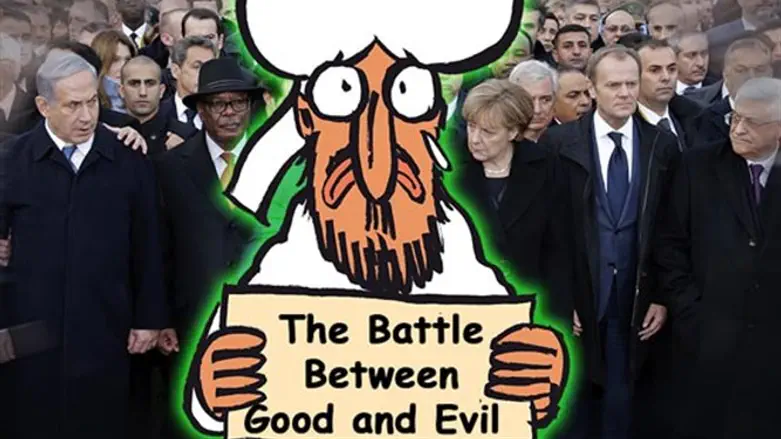
“Everything has become blasphemous”, writes Riss, director of Charlie Hebdo, in the latest issue of the weekly issue that comes out on the anniversary of the massacre of his colleagues by two Islamists, the Kouachi brothers. Four years later, it is the same idea of freedom of expression that has become blasphemous in the West.
Charlie Hebdo's troubles, culminating in the murder of its journalists and cartoonists, began with the solitary republishing of the Mohammed cartoons by the Danish newspaper Jyllands Posten. In the four years since the massacre at number 10 of rue Nicolas-Appert in Paris, no European newspaper has republished a single sticker on the Prophet of Islam and all mainstream media have pixelled Charlie Hebdo's caricatures.
From France to Germany, journalists and intellectuals under police guard because of their criticism and ideas about Islam cannot be counted (from the French Eric Zemmour to the German Hamed Abdel-Samad and Thilo Sarrazin).
At the end of the year there was the historic ruling by the European Court of Human Rights in Strasbourg on the case of an Austrian woman who had called Mohammed a “pedophile” because of his relationship with a child, Aisha. In Austria, the woman was convicted in a sentence validated by the Strasbourg judges, who ruled that freedom of expression ends on the border with Islam.
“The day freedom of speech died in Europe”, wrote the American magazine Commentary about this ruling. The highest supranational legal entity in Europe has incorporated, de facto, the idea of blasphemy used in sharia and which cost the lives of Charlie Hebdo's journalists.
But it is not just Islamists.
The threat to freedom of speech now emanates not only from the jihadists, but from within the democracies themselves. In the West there is now a pervasive aversion to the principle of freedom of speech. The issues around freedom of speech on European and American university campuses, for example, have dramatically intensified since the Charlie Hebdo massacre. Professors intimidated, disengaged, mobbed. Books censored or bleached in the parts that would offend the new common feeling.
It has come, as in Berkeley, to the disturbing use of force to silence voices with which we disagree.

“Christians are fed to the lions ... and no one seems to care”, wrote one of Australia's major columnists Greg Sheridan last week. The great battles in favor of freedom of expression abroad do not mobilize even a few groups of activists. Like the case of Asia Bibi, whose story fits perfectly into that “all became blasphemous” by Riss, a crime of having violated the Pakistani law on “blasphemy”.
The great battles in favor of freedom of expression abroad do not mobilize even a few groups of activists. Like the case of Asia Bibi, whose story fits perfectly into that “all became blasphemous” by Riss, a crime of having violated the Pakistani law on “blasphemy”.
“Christians are fed to the lions ... and no one seems to care”, wrote one of Australia's major columnists Greg Sheridan last week.
There is the case of Raif Badawi, a Saudi blogger whipped and imprisoned for his liberal posts, and almost forgotten in his hovel in Riyadh.
And Charlie, the “new” Charlie Hebdo, gets a little bit too. In the issue released for the fourth anniversary of the massacre there are criticisms of the “anti-Enlightenment” elements, such as Zemmour and Michel Houellebecq, among others.
On 7 January four years ago, all the major newspapers, television networks and photo agencies, starting with the “Big Three” (MSNBC, CNN and AP), competed to justify the decision to censor and obscure the most famous “Islamophobic” cartoons by Charlie Hebdo. A year later, the same publications published the cover of Charlie Hebdo with the biblical God “killer” who runs away.
No one had a problem showing the new cover of the French weekly, where you can see a bishop and an imam. At the next anniversary, perhaps only the bishop will remain on the cover. And maybe they will all be Charlie again.